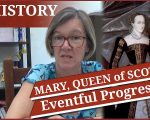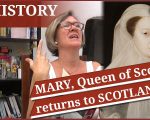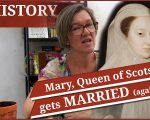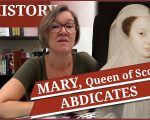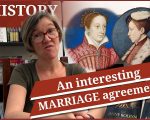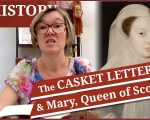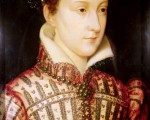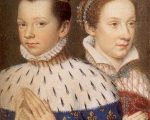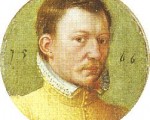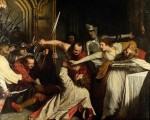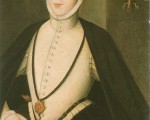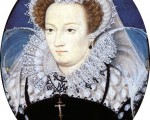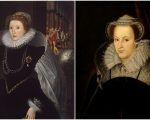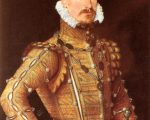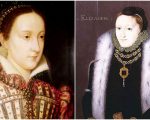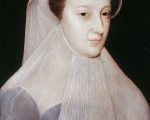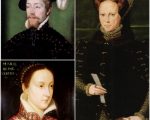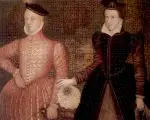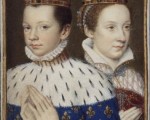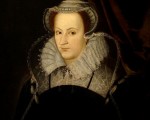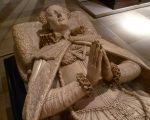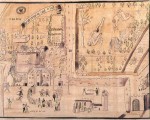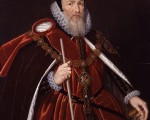On this day in history, 24th April 1558, Mary, Queen of Scots, married Francis, the Dauphin of France, at Notre Dame in Paris. Mary was fifteen, and Francis was fourteen.
In his book The Book of the Ladies (Illustrious Dames), Pierre de Bourdeille, seigneur de Brantôme, wrote of their marriage:
“This lady and princess pleased France so much that King Henri was urged to give her in alliance to the dauphin, his beloved son, who, for his part, was madly in love with her. The marriage was therefore solemnly celebrated in the great church and the palace of Paris; where we saw this queen appear more beauteous than a goddess from the skies, whether in the morning, going to her espousals in noble majesty, or leading, after dinner, at the ball, or advancing in the evening with modest steps to offer and perform her vows to Hymen; so that the voice of all as one man resounded and proclaimed throughout the Court and the great city that happy a hundredfold was he, the prince, thus joined to such a princess; and even if Scotland were a thing of price its queen out-valued it; for had she neither crown nor sceptre, her person and her glorious beauty were worth a kingdom; therefore, being a queen, she brought to France and to her husband a double fortune.
This was what the world went saying of her; and for this reason she was called queen-dauphine and her husband the king-dauphin, they living together in great love and pleasant concord.”
[Read More...]
